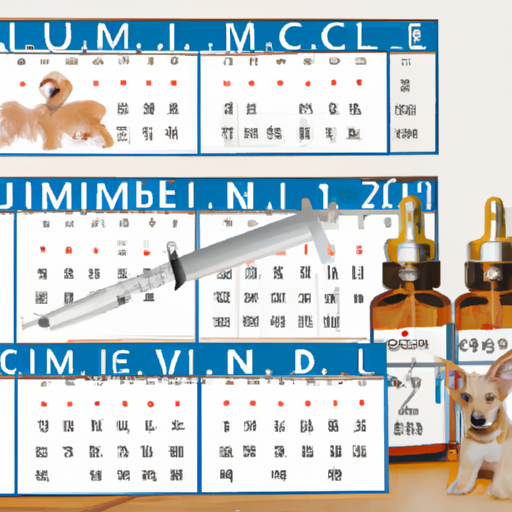Introduction
As a devoted caregiver for your furry friend, you undoubtedly want to ensure your dog’s health and longevity. Vaccinations are an essential aspect of their health care plan. We’ll discuss the various shots your dogs need annually and the diseases they prevent.
Core Vaccines
The American Animal Hospital Association (AAHA) classifies vaccines as either “core” or “non-core.” Core vaccines are those recommended for all dogs, regardless of their lifestyle or location.
1. Rabies
Veterinarians typically administer the Rabies vaccine at four months of age, with a booster shot at one year of age. Following the booster shot, your dog will require a Rabies vaccination every one to three years, depending on local laws.
2. Distemper, Parvovirus, and Adenovirus
Many veterinarians administer these three vaccines together in a combination vaccine generally referred to as a “DAPP” shot. Your dog will typically receive a DAPP shot at six to eight weeks of age, followed by boosters every two to four weeks until they are about 16 weeks old. After that, they’ll need a booster shot every one to two years.
| Core Vaccine | Initial Vaccination | Booster |
|---|---|---|
| Rabies | 4 months | 1-3 years |
| DAPP | 6-8 weeks | 1-2 years |
Non-Core Vaccines
Non-core vaccines are those that may be necessary depending on your dog’s lifestyle, location, and breed. Some common non-core vaccines include:
- Bordetella
- Lyme Disease
- Leptospirosis
- Canine Influenza
Consult with your vet to determine which, if any, non-core vaccines your dog may need.
The Importance of Regular Vet Check-ups
An annual vet visit is not just about administering vaccines. It’s also an opportunity for your vet to conduct a thorough physical examination, and check for signs of any emerging health issues. Regular check-ups can help catch potential health problems early, when they are typically easier and less expensive to treat.
FAQ Section
Q: Can I skip my dog’s annual shots?
A: Skipping your dog’s annual shots can leave them vulnerable to serious diseases. Always consult with your vet before deciding to skip a vaccine.
Q: Are there side effects to vaccines?
A: Some dogs may experience mild side effects like soreness at the injection site or a slight fever. Severe reactions are rare.
Q: Are some breeds more susceptible to certain diseases?
A: Yes, some breeds are more prone to certain diseases than others. Your vet can provide more information based on your dog’s breed.
By understanding the importance of annual shots, you can make informed decisions about your dog’s health. Remember, as a caregiver, your dog relies on you to help them live a long, healthy, and happy life.



